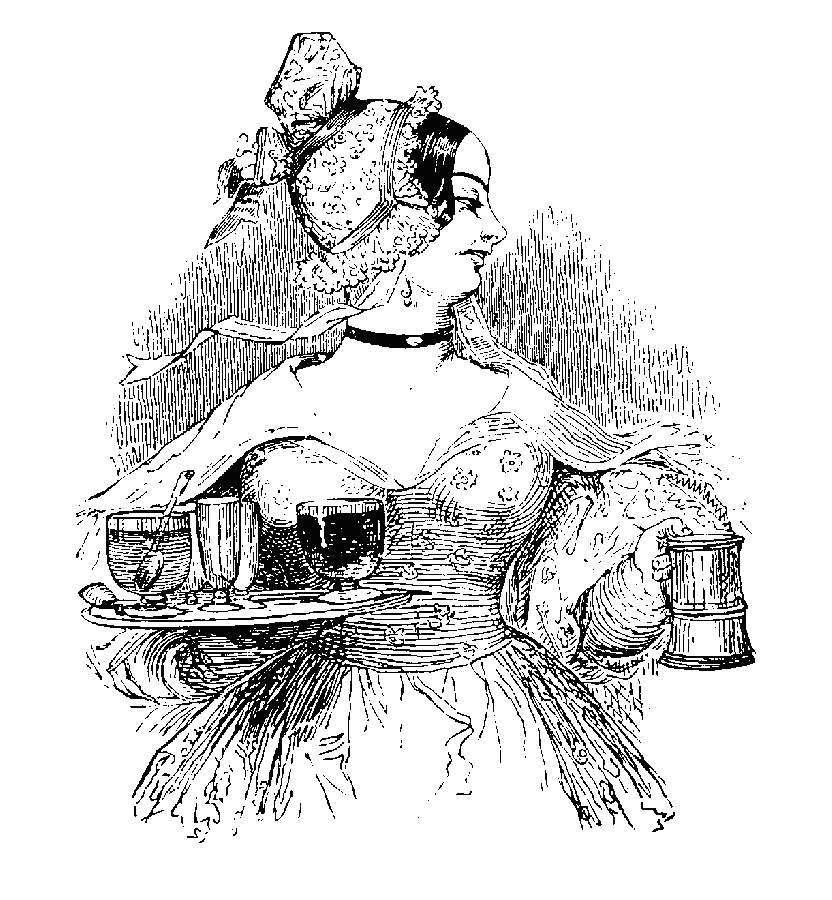![]()
![]()
![]()
Porter dates from the 1720's and is the predecessor to Stout. It is
moderately sweet with flavors of chocolate and molasses and a slight coffee
and toffee
 aftertaste.
Hop and roasted grain flavors are there but, unlike Stout, all Porter flavors
are equally balanced with plenty of body without being too heavy.
aftertaste.
Hop and roasted grain flavors are there but, unlike Stout, all Porter flavors
are equally balanced with plenty of body without being too heavy.
Porter is a very dark, top-fermented beer first brewed in London in 1722 by a man named Harwood as a substitute for a then popular mix of ale, beer, and two penny beer. Called Entire, the beer was advertised as being richer and more nourishing than ale, and was intended for porters and other heavy laborers who would find in it the strength to accomplish their tasks. Its color comes from roasted, unmalted barley.
The hopping rate of the ancient Porters is also not well known. The hops that are used now were unknown then, and the hops in use then are not used now. Forget about asking what the alpha acid content of these hops might have been. The oldest of the hop types now used is the Goldings, first cultivated in the 1780's. This could have been used to make Porter, but probably wasn't! Goldings are considered to be the classic pale ale hop, and the makers of Porter were conscientiously trying to make something that was NOT a pale ale!
Porters have a medium to full body in a balanced beer that has a noticeably coffee-like dryness, and may have a malty sweet flavor that comes through in the finish. Chocolate and black malts add a sharp bitterness, but do so without adding roasted or charcoal notes. There can be a little roast barley character or none at all. Hop bitterness is medium to high. The color is deep brown with red hues to black. Some versions are made with lager yeast.
The pinnacle of Porter brewing probably occurred in the early 1830s. After that, the amount of Porter actually brewed in London began a long, slow decline. However, the making of Porter spread to all points of the globe, following the soldiers and bureaucrats of Britain all across the Empire. Today there are distinctive Porters being made in such unlikely spots as Jamaica and Thailand, but these far flung breweries would be making a Porter as much unlike the original as can be imagined. Porter has been brewed for so long, by so many brewers, that the modern interpretations probably bear little resemblance to the original dark knock off beer of some grimy back street brewery using contaminated well water from the East side of London.